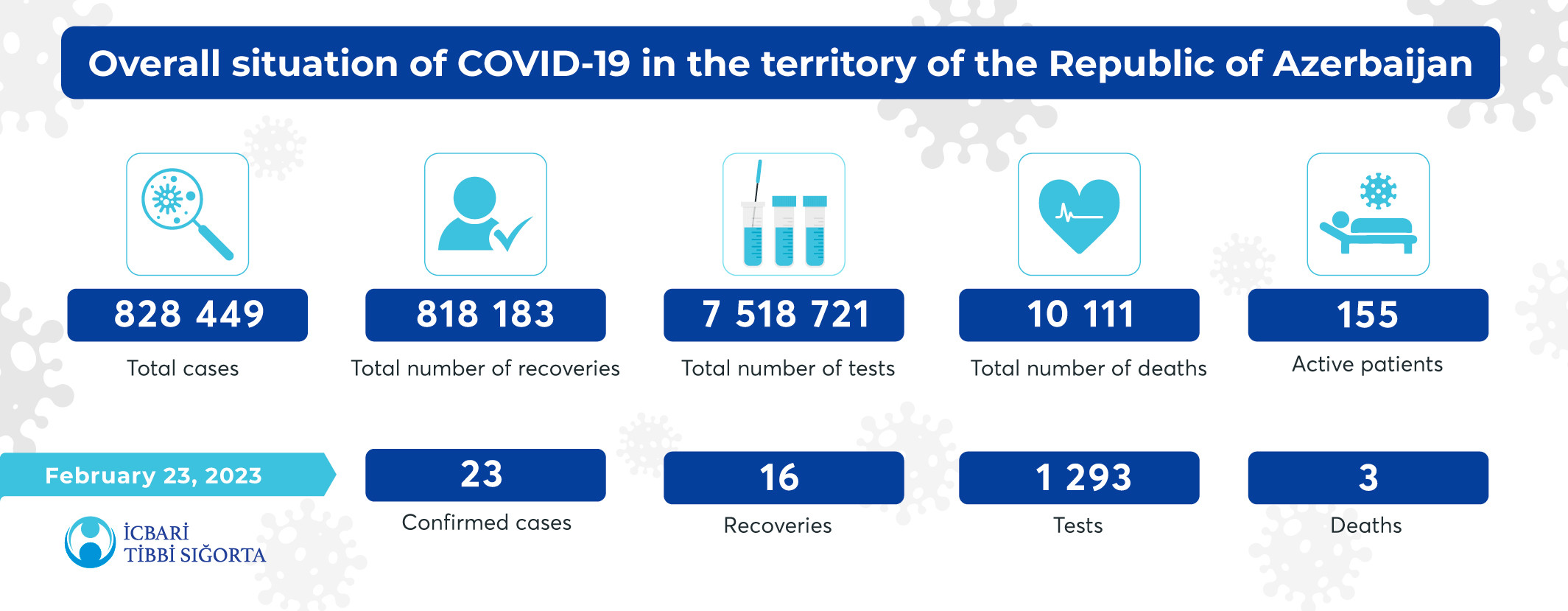A new type of coronavirus infection (2019-nCOV) started in mid-December 2019 with the first detection of pneumonia of unknown etiology among the local population in Wuhan, central Hubei Province, China. The World Health Organization (WHO) named the infection disease COVID-19 on February 11, and on March 11 declared the coronavirus outbreak a pandemic. The first case of coronavirus (COVID-19) infection in Azerbaijan was registered on February 28, 2020. In order to prevent the spread of coronavirus infection in the country, the special quarantine regime has been extended until September 1, 2022. All citizens are required to comply with the requirements of the quarantine regime.
Information about coronavirus may be obtained by calling 1542 - Call Center of the Agency. If you experience respiratory symptoms (fever, weakness, cough, nausea, shortness of breath) you may call the emergency telephone numbers at 103 (within Baku) or 113 (outside of Baku) and undergo a medical examination. Hotline numbers are of Operative Headquarters available to inform the public and prevent disinformation: +994 12 492 41 61, +994 12 492 75 54, +994 12 505 03 30, + 994 12 505 13 33.

Information as of February 23, 2023
In accordance with international experience special state healthcare facilities have been defined in the country for laboratory diagnostics of coronavirus infection.The laboratories in specially designated medical facilities are fully compliant with all the biosafety and other quality standards set by WHO. The tests are performed by highly qualified personnel, the accuracy of test results is controlled by special programs.
You may follow the global updates about coronavirus on the official website of World Health Organization.
Vaccination
In accordance with the "Vaccination Strategy against COVID-19 in the Republic of Azerbaijan for the years 2021 and 2022", based on the Decree of the Cabinet of Ministers, dated January 16, 2021, the process of vaccination started on January 18, 2021. Individuals aged 18 and above are being vaccinated.
Currently, Sinovac and Pfizer vaccines are used for vaccination. Vaccination certificates are issued to persons who have been vaccinated against COVID-19 with both doses. Until now, the vaccination process is continuing successfully and a total of 13948730 vaccine doses have been applied in our country.
To get vaccinated, it is necessary take an online appointment for coronavirus vaccination using the electronic service "COVID-19 vaccine appointment". The person visits the selected health facility on the appointed date and time and receives the first dose of vaccine. There is no need to re-register for the second dose of the vaccine 28 days after the first dose. During the first application, an online appointment is made for the second dose at the correct time interval and same place. Here you can find answers to the most frequently asked questions about vaccinations.
Preventive measures
Operative Task Force consisting of the top officials from the relevant state bodies and agencies has been established under the Cabinet of Ministers for the purpose of prevention of coronavirus risk in Azerbaijan and expeditious implementation of preventive and urgent measures. Expert teams consisting of appropriate sectoral specialists were formed to carry out preventive measures and monitoring throughout the Republic of Azerbaijan.
“Action Plan to prevent the spread of novel coronavirus disease in the Republic of Azerbaijan” has been approved by the order of Cabinet of Ministers on January 30, 2020. The measures planned in the Action Plan are being implemented. Due the expansion of the geography of mentioned decease across the world the Cabinet of Ministers approved the comprehensive Plan of Measures.
Intensive work is carried out jointly with the World Health Organization (WHO) to prevent the spread of coronavirus and increase the effectiveness of appropriate preventive measures, and serious efforts are made to implement all the recommendations.
Relevant hospitals have been allocated and quarantine zones have been established to detect coronavirus cases in the country. Sanitary and epidemiological situation in the country is strictly kept under control and the public is constantly being informed about the work carried out in this direction.
WHO recommendations
Protective measures against the coronavirus
• When coughing or sneezing cover your mouth and nose with flexed elbow or tissue.
• Wash your hands with soap after coughing or sneezing.
• Wash your hands with soap when they are visibly dirty.
• Use a cleaning aid containing alcohol (disinfectant).
• Wash your hands when caring for the sick.
• Avoid unprotected contact with sick people (do not touch their eyes, nose, or mouth) and with wild or home/farm animals.
• Wear a protective gown, gloves, and a protective mask (face protection) when handling animals and animal products.
• Avoid stray animals, common waste, and liquid waste in the market.
• Wash your hands often with soap and water immediately after touching animals and animal products.
• Avoid contact with sick animals and spoiled meat.
• Sick and dead animals should not be eaten.
• Wash your hands after toilet use.
• Follow food safety precautions.
• Wash your hands before, during, and after cooking.
• Cook meat products and eggs well.
• Use different cutlery and knives for raw meat and cooked foods.
• Wash your hands after you touch raw or cooked foods.
• Even in burning areas, meat products will be safe and can be consumed if they are well cooked and properly prepared.
• Disinfect the equipment and work area at least once a day.
• After work, remove protective clothing, rinse it, and keep it in the workplace.
• Avoid exposing family members to contaminated clothing and footwear.
• Throw tissue into closed bin immediately after use.
• Reduce the risk of coronavirus infection.
• Stay healthy







